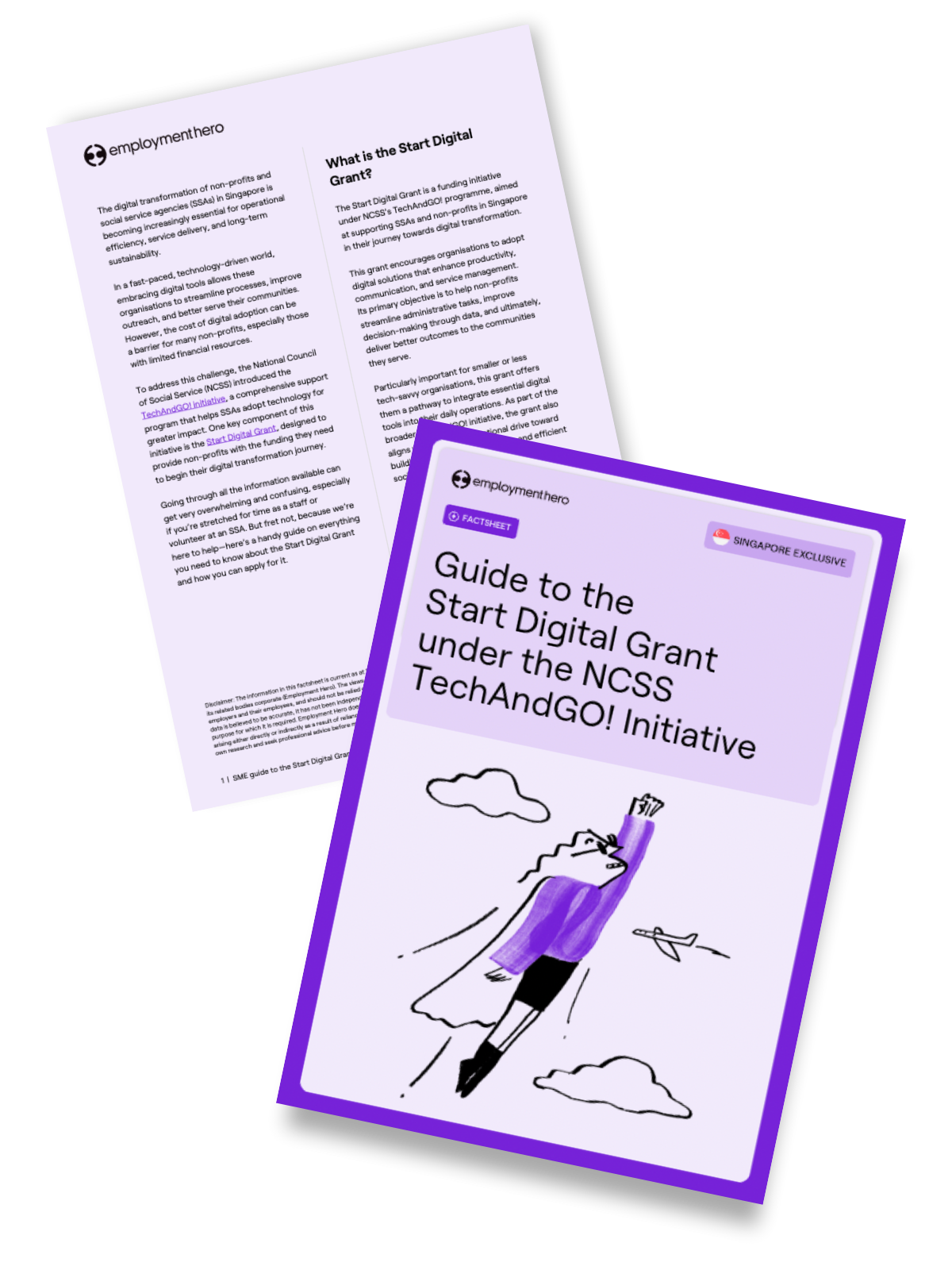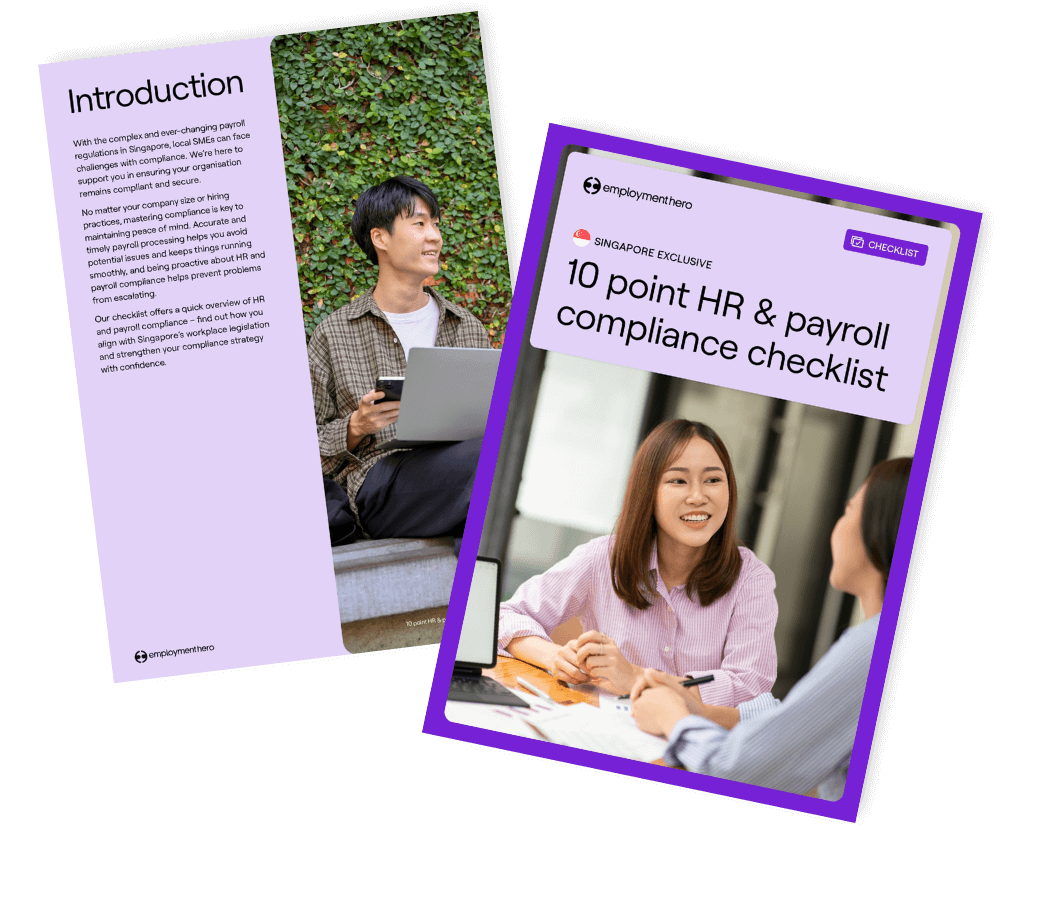What is the Workplace Fairness Legislation and how can your company prepare for it?
Published
What is the Workplace Fairness Legislation and how can your company prepare for it?
In February this year, the Tripartite Committee on Workplace Fairness released its interim report on recommendations for workplace fairness legislation. The committee was formed in 2021 to review the workplace fairness framework in Singapore, and comprises the Ministry of Manpower (MOM), National Trades Union Congress (NTUC) and Singapore National Employers Federation (SNEF).
The Workplace Fairness Legislation framework, comprising 20 recommendations, provides protection against common forms of workplace discrimination, and focuses on mediation rather than litigation for dispute resolution. When enacted — estimated to be at the end of 2024 — this Workplace Fairness Legislation will complement, not replace, existing Tripartite Guidelines on Fair Employment Practices.
This is a significant step forward in promoting fairness and strengthening fair employment practices, whilst also enhancing protection for workers from workplace discrimination. But what does this all mean for employers, and what can employers do to prepare for it? Here’s everything you need to know.
Note: One of the recommendations is exempting small firms with fewer than 25 employees from the legislation for a start, with a view to lowering this exemption in five years.
In this factsheet, we cover;
- Is workplace discrimination prevalent in Singapore currently?
- How is workplace discrimination currently dealt with in Singapore?
- What are the proposed recommendations for the new Workplace Fairness Legislation to tackle workplace discrimination?
- What can you do to prepare your organisation for the upcoming Workplace Fairness Legislation?
Download the factsheet now to find out more.
Is workplace discrimination prevalent in Singapore currently?
Singapore still has a long way to go as workplace discrimination remains a key concern amongst jobseekers and employees. There is promising news, however. According to the Fair Employment Practices report released by the MOM, incidents of discrimination in the workplace and during recruitment have declined for the second consecutive year in Singapore in 2022.
The number of job seekers who experienced discrimination during their job search fell from 42.7% in 2018 to 25.8% in 2021 and down to 23.8% in 2022. The number of employees who have experienced discrimination at work has also continued to decline, from 24.1% in 2018 to 8.5% in 2021 and down to 8.2% in 2022.
The most common forms of discrimination seen during a job search were age (16.6%), race (7.1%), mental health (5%), family status (4.3%), sex (4.2%), nationality (4%), and religion (3.6%). Although age discrimination remained the main form of discrimination towards job seekers, the proportion of job seekers who experienced age discrimination declined, from 18.9% in 2021 to 16.6% in 2022.
However, there was an increase in job seekers who faced discrimination due to mental health conditions — up from 2.9% in 2021 to 5% in 2022. This could be attributed to greater expectations for employers to care for their staff’s mental health needs, as well as an increase in the number of jobseekers with mental health conditions.
On the other hand, the top forms of discrimination at work were mental health (4.7%), age (3.7%), race (2.6%), disability (2.5%), nationality (2.5%), family status (2%), sex (1.9%) and religion (1.5%). Employees who experienced discrimination more commonly reported unfair treatment related to remuneration (salary: 56%; bonus: 36.7%), workload distribution (46%), and career progression (appraisal: 44.7%; promotion: 44.7%; and career development: 38.7%). Females were also more likely than males to experience discrimination at work.
How is workplace discrimination currently dealt with in Singapore?
Currently, there are no specific laws in Singapore which directly regulate workplace discrimination. It is instead addressed through a combination of regulations and government initiatives. The primary piece of legislation addressing workplace discrimination in Singapore is the Employment Act — it provides a framework for regulating various aspects of the employment relationship, including terms and conditions of employment, termination, and protection against unfair practices.
The Tripartite Alliance for Fair and Progressive Employment Practices (TAFEP) was also set up in 2006 by the Ministry of Manpower (MOM), National Trades Union Congress (NTUC), and Singapore National Employers Federation to promote fair and progressive employment practices. It provides guidance and resources to employers on how to create inclusive workplaces and avoid discriminatory practices, and encourages companies to adopt non-discriminatory practices in areas such as recruitment, remuneration, and advancement. Employers are expected to abide by the principles of fair employment and adopt the recommended good practices set out in the TAFEP Guidelines.
Employees who believe they have experienced workplace discrimination can file complaints with their employer directly, or with relevant authorities. Companies might have pre-existing procedures in place for addressing discrimination complaints, but these are often present and adhered to strictly only in larger organisations. The Ministry of Manpower (MOM) and the Tripartite Alliance for Dispute Management (TADM) also handle such complaints by carrying out investigations and mediating disputes between employers and employees.
Download the factsheet now to find out more.
Related Resources
-
 Read more: Everything You Need to Know About the Start Digital Grant Under the NCSS TechAndGO! Initiative
Read more: Everything You Need to Know About the Start Digital Grant Under the NCSS TechAndGO! InitiativeEverything You Need to Know About the Start Digital Grant Under the NCSS TechAndGO! Initiative
Discover the Start Digital Grant under NCSS’s TechAndGO! initiative.
-
 Read more: 10 point HR and payroll compliance checklist
Read more: 10 point HR and payroll compliance checklist10 point HR and payroll compliance checklist
Get peace of mind with our 10 point HR and payroll compliance checklist.
-
 Read more: From Hi to Hired: Hire Faster, Hire Smarter.
Read more: From Hi to Hired: Hire Faster, Hire Smarter.From Hi to Hired: Hire Faster, Hire Smarter.
This session will equip you with techniques to streamline hiring, enhance candidate experience.







